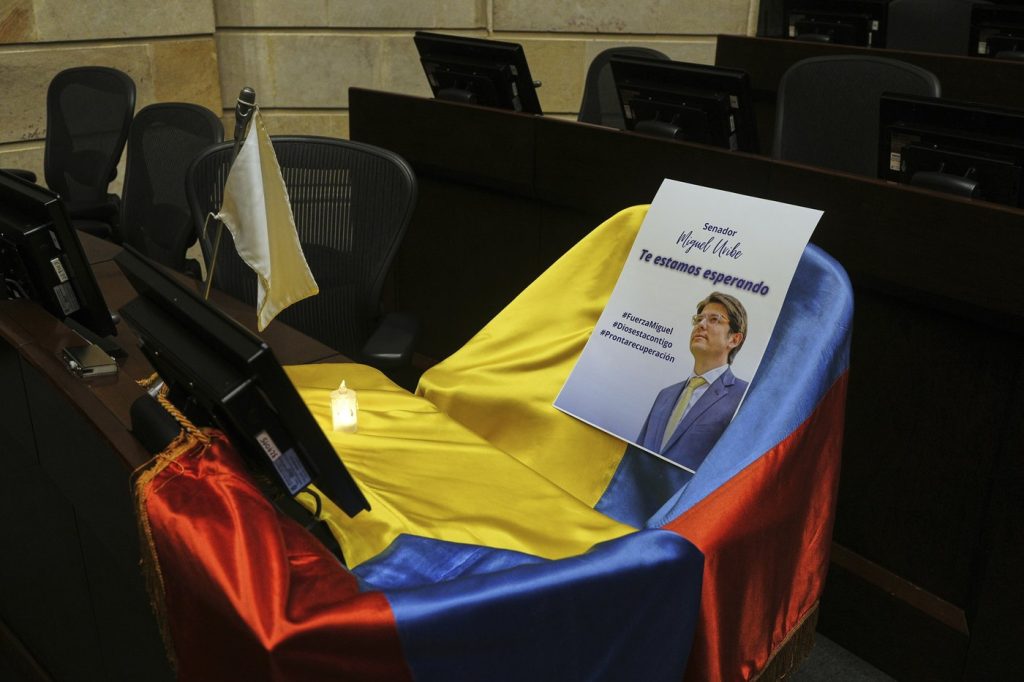On June 7, 2023, a significant political incident occurred in Bogotá, Colombia, when Miguel Uribe Turbay, a conservative senator and presidential candidate, was shot while giving a speech in a park. The attack unfolded in broad daylight, with Uribe being wounded in the head by a minor who managed to flee but was captured shortly thereafter. This incident has intensified scrutiny on security in Colombia, a nation grappling with a violent past involving drug cartels and insurgent groups targeting political figures.
Following a month-long investigation, law enforcement authorities apprehended Elder José Arteaga Hernández, known by the aliases "Chipi" and "Costeño," on Saturday. Arteaga was arrested in a neighborhood in northwestern Bogotá, as confirmed by National Police Director Maj. Gen. Carlos Fernando Triana. Initial investigations had linked Arteaga and several other suspects to the vicinity of the park where the shooting took place. The capture is seen as a critical step in unraveling the motives and logistics behind the attack on Uribe.
In addition to Arteaga’s arrest, three other individuals have been taken into custody, all believed to have played roles in the logistics and execution of the crime. Authorities continue to investigate the underlying motives for the attack, which remains unclear despite its serious implications for Colombia’s political landscape. Uribe, who has been a prominent critic of President Gustavo Petro, had recently announced his intention to run in the 2026 presidential election. Currently, he is in intensive care, having undergone several surgeries to address his injuries.
The blatant violence of the attack has garnered widespread condemnation from various sectors of Colombian society, reflecting the ongoing challenges the nation faces with political violence. The historical context highlights the country's struggles with crime, where political candidates have often been targeted by various criminal factions. The incident reignites fears about security in the political realm and raises questions about the safety of those involved in politics in Colombia.
Arteaga faces multiple charges including attempted aggravated homicide, the manufacturing and trafficking of firearms or ammunition, and utilizing minors to commit crimes. His arrest followed the issuance of a red notice by Interpol just a day earlier, indicating the seriousness of the charges against him and the international implications of the case. Maj. Gen. Triana also revealed that Arteaga has a lengthy criminal history, spanning over two decades, and has been involved in various criminal activities across Bogotá.
As the situation develops, it remains uncertain whether Arteaga has secured legal representation to advocate on his behalf in the upcoming court proceedings. Authorities plan for him to make his first court appearance over the weekend, which will likely shed more light on the case and potentially unveil further details about the conspiracy behind the attack on Uribe. The urgency of this situation not only underscores the vulnerabilities within Colombia’s political arena but also calls into question the efficacy of law enforcement in combating political violence.











